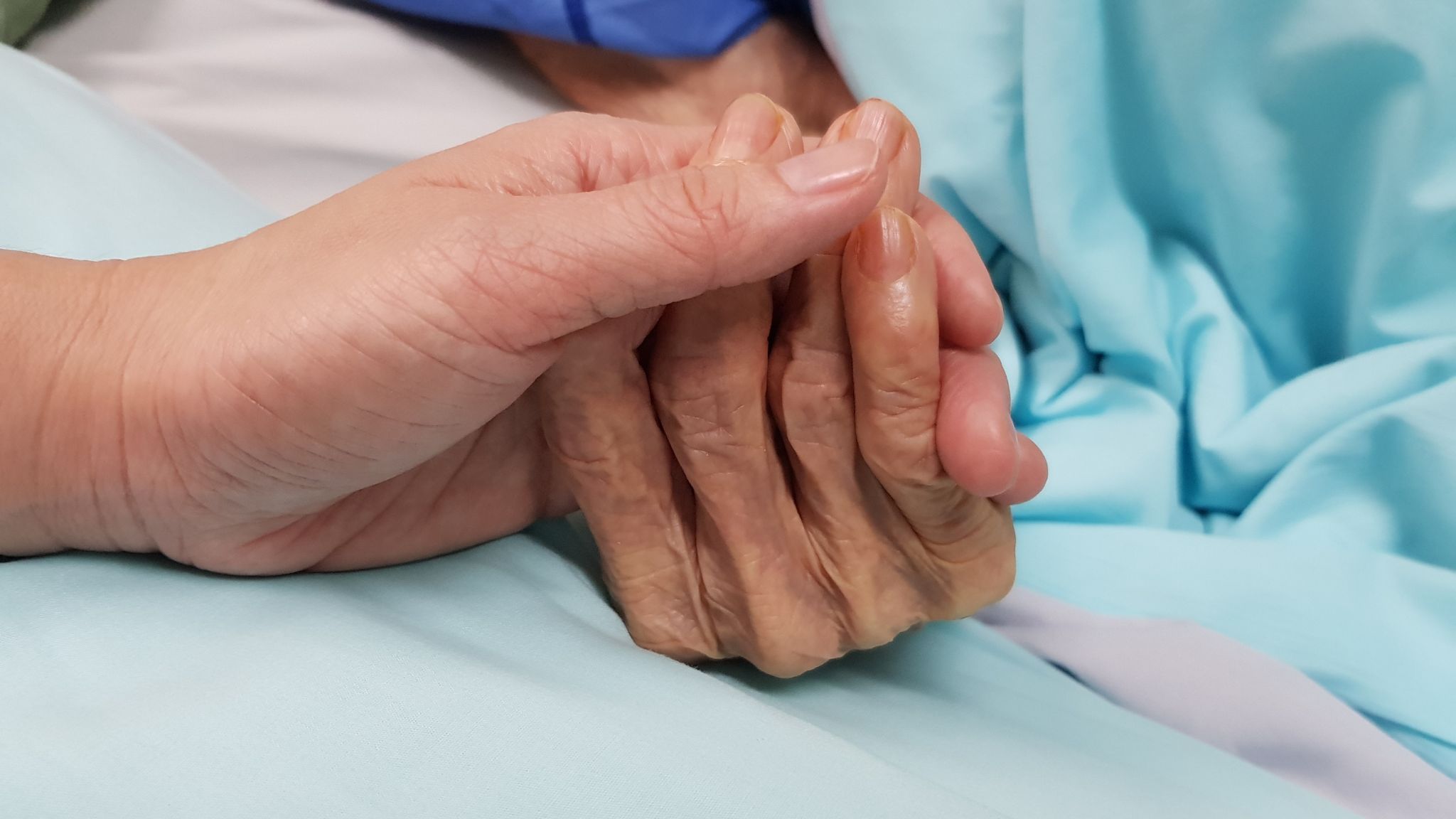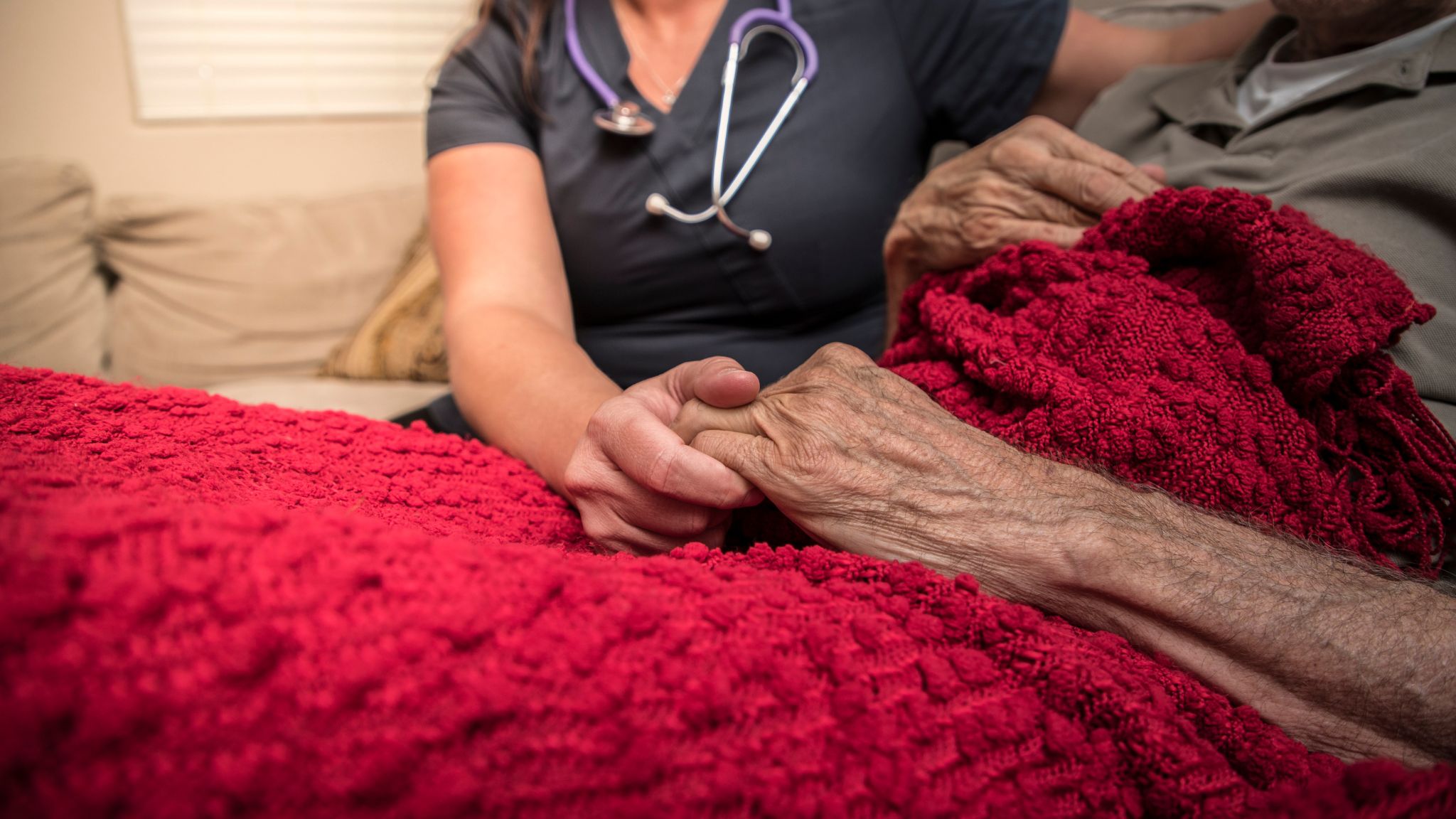
Chronic Pain and End of Life Care
Chronic pain can significantly impact a person’s quality of life, especially towards the end of life. Managing pain effectively is crucial in end-of-life care to ensure comfort and dignity for the individual. There are various approaches to addressing chronic pain in this context. In the realm of end-of-life care, chronic pain manifests as a significant hurdle, demanding a nuanced understanding. It’s more than mere physical discomfort; it touches upon the emotional, psychological, and spiritual dimensions of a person’s existence. Addressing chronic pain requires a multifaceted approach that goes beyond mere symptom management.
Medication Management for Chronic Pain in End-of-Life Care
Chronic pain is a formidable companion, especially in the tender moments of life’s closure. As individuals traverse this challenging phase, ensuring comfort becomes a paramount concern. In this journey, medication management emerges as a guiding light, offering relief and solace while treading delicately between efficacy and risks.
Medications stand as stalwart allies in the pursuit of comfort. They come in various forms, from opioids like morphine to non-opioids such as NSAIDs, each with its unique strengths and considerations. Opioids, known for their potent pain-relieving properties, require careful administration to mitigate potential side effects, including sedation and constipation, all while navigating concerns of dependency.
The crux of medication management lies in balancing the scales between efficacy and risks. It’s a delicate dance where healthcare providers tailor medication regimens to meet individual needs. Careful dosing and constant vigilance ensure that pain is managed effectively while minimizing any adverse effects that might diminish the patient’s quality of life.
Medication management operates hand in hand with complementary strategies. Physical therapy, acupuncture, or relaxation techniques augment the effects of medications, addressing not just the physical aspect of pain but also nurturing emotional and psychological well-being.
Central to effective medication management is honouring the patient’s preferences and choices. Open dialogue between healthcare providers, patients, and their families fosters a supportive environment where individual beliefs, values, and goals are respected. This approach tailors medication strategies in alignment with the patient’s desires, ensuring a care plan that’s as unique as they are.
Palliative Care and Hospice Services in Chronic Pain Management

In the realm of end-of-life care, palliative care and hospice services stand as beacons of solace and support, particularly for individuals grappling with the burden of chronic pain. These specialized care avenues prioritize comfort, dignity, and holistic well-being, offering a tapestry of support to navigate the final stages of life’s journey.
Palliative care transcends conventional medical treatment. It’s a comprehensive approach that focuses on alleviating pain and symptoms while nurturing emotional and spiritual well-being. For those wrestling with chronic pain in their final days, palliative care becomes a guiding light, providing a multidimensional strategy that extends beyond physical relief.
Hospice care steps in when curative treatments take a backseat, embracing the philosophy of comfort-centered care. It embodies a tranquil sanctuary where individuals facing life-limiting illnesses find respite, surrounded by a caring team dedicated to ensuring their comfort, dignity, and quality of life.
Chronic pain, an ever-present companion in many end-of-life journeys, finds a compassionate ally in palliative and hospice care. Medication management takes center stage, utilizing a spectrum of drugs to mitigate pain while considering the unique needs and sensitivities of each individual. Opioids, NSAIDs, and adjuvant medications become tools in the pursuit of comfort, carefully administered to balance pain relief with potential side effects.
In the realm of palliative and hospice care, holistic comfort prevails. Complementary therapies such as massage, acupuncture, music therapy, and counselling intertwine with medication management, addressing not just the physical pain but also the emotional and spiritual anguish that often accompanies chronic pain at life’s close.
Central to palliative and hospice care is the individualized approach. The care team, comprising healthcare professionals, caregivers, and volunteers, strives to understand the patient’s unique preferences, values, and goals. Open communication fosters a supportive environment, ensuring care aligns with the patient’s wishes, cultural beliefs, and spiritual practices.
The Multifaceted Approach to Chronic Pain Management in End-of-Life Care
In the landscape of end-of-life care, the multidisciplinary approach emerges as a powerful ally in the battle against chronic pain. This collaborative strategy, harnessing the expertise of various healthcare professionals, aims not just to alleviate pain but to enrich the final stages of life with comprehensive support, understanding, and comfort.
At the heart of the multidisciplinary approach lies a team of diverse healthcare professionals, including physicians, nurses, physical therapists, psychologists, counsellors, and specialists. Together, they form a mosaic of expertise, each contributing a unique perspective to address the multifaceted aspects of chronic pain.
The hallmark of this approach is its holistic vision. Rather than focusing solely on symptom management, the team collaborates to understand the patient’s needs comprehensively. They consider not only the physical dimensions of pain but also the emotional, psychological, and spiritual elements, aiming to nurture comfort in all facets of life.
While medications play a pivotal role in pain relief, their administration within a multidisciplinary framework is nuanced. The team collaborates to tailor medication regimens, balancing efficacy with potential risks. Regular evaluations and adjustments ensure that pain is managed effectively while mitigating any adverse effects that might compromise the patient’s well-being.
The beauty of the multidisciplinary approach lies in its integration of diverse therapies. Physical therapy, acupuncture, mindfulness practices, and counselling sessions intertwine with medication management, offering a multifaceted toolkit to address chronic pain comprehensively.
Central to this approach is personalized care. The team endeavours to understand the patient’s preferences, values, and goals. Open communication fosters a collaborative environment where the patient’s voice is heard, ensuring that care aligns with their wishes and cultural beliefs.
In the twilight of life, the multidisciplinary approach becomes a source of comfort, support, and understanding. It weaves a tapestry of care that transcends pain relief, enriching the final chapters with dignity, compassion, and a sense of holistic well-being.
Non-Pharmacological Approaches in End-of-Life Chronic Pain Management
In the landscape of end-of-life care, non-pharmacological interventions emerge as comforting companions, offering relief from chronic pain that extends beyond traditional medication. These holistic strategies encompass various therapies and practices, enriching the final stages of life with diverse avenues to alleviate pain and foster a sense of tranquillity.
Non-pharmacological interventions redefine pain management, encompassing techniques that address the physical, emotional, and spiritual dimensions of suffering. Unlike medications, these approaches aim to complement traditional treatments, offering a more comprehensive approach to pain relief.
Mindfulness, meditation, and relaxation techniques form the crux of mind-body interventions. These practices encourage individuals to cultivate a heightened awareness of their body and thoughts, fostering a sense of calm amidst the discomfort of chronic pain. Such interventions not only alleviate physical distress but also nurture emotional well-being.
Physical touch through massage therapy or acupuncture offers a gentle yet powerful way to alleviate pain. Massage techniques ease muscle tension, providing relief from the physical manifestations of pain. Similarly, acupuncture stimulates specific points in the body, promoting the release of natural pain-relieving chemicals, offering a non-invasive approach to pain management.
Physical therapies like yoga, tai chi, and gentle stretching exercises contribute to pain management by enhancing flexibility, reducing stiffness, and improving overall well-being. These movement-based interventions not only alleviate physical discomfort but also instill a sense of serenity and balance.
Art and music transcend the boundaries of conventional treatment. Art therapy, through creative expression, offers individuals a channel to articulate emotions and find solace amidst pain. Similarly, music therapy, with its calming melodies, creates a serene atmosphere that eases physical discomfort and nurtures emotional tranquillity.
The beauty of non-pharmacological interventions lies in their adaptability to individual preferences. Caregivers and healthcare providers collaborate with patients to select interventions that resonate with their beliefs, values, and comfort levels, ensuring a tailored approach that enriches their end-of-life experience.
The Healing Power of Communication and Emotional Support
In the realm of end-of-life care, communication and emotional support emerge as pillars of strength, offering solace and understanding to individuals grappling with the burden of chronic pain. This compassionate approach goes beyond mere words, fostering a deep connection that alleviates suffering and enriches the final stages of life with empathy and warmth.
Open and empathetic communication forms the cornerstone of effective care. Healthcare providers, caregivers, and loved ones engage in compassionate dialogue, actively listening to the patient’s experiences, concerns, and preferences. This exchange fosters a sense of trust and understanding, allowing for tailored care that respects individual needs and desires.
Empathy, the ability to comprehend and share another’s feelings, lies at the heart of emotional support. Healthcare professionals and caregivers endeavour to step into the patient’s shoes, acknowledging their pain, fears, and emotions. This empathetic connection creates a safe space where individuals feel heard, validated, and supported.
Chronic pain often intertwines with emotional distress. The communication of emotions, whether fear, sadness, or anxiety, becomes an integral part of the caregiving process. By acknowledging and validating these emotions, healthcare providers and caregivers offer a profound sense of reassurance and companionship, nurturing emotional well-being.
In the realm of end-of-life care, empowering individuals to be active participants in decision-making is paramount. Open discussions about treatment options, pain management strategies, and end-of-life preferences allow patients to retain a sense of autonomy, ensuring that care aligns with their values and wishes.
Beyond professional caregivers, a supportive network of family, friends, and community members plays a pivotal role. Their presence, understanding, and willingness to offer emotional support create a nurturing environment that uplifts individuals facing chronic pain in their final journey.
Spiritual well-being is often integral in end-of-life care. Supporting individuals in exploring their spiritual beliefs, rituals, or practices becomes a means of finding solace and meaning amidst pain. This aspect of care fosters a sense of peace and connection beyond the physical realm.

Respecting Choices in Chronic Pain Management at Life's Close
In the realm of end-of-life care, honouring and respecting patient preferences emerges as a guiding principle, especially in the management of chronic pain. This patient-centric approach prioritizes understanding, empathy, and tailored support, ensuring that each individual’s unique wishes and values are at the forefront of their care journey.
At the heart of patient-centric care lies the fundamental principle of autonomy. Individuals facing chronic pain are empowered to make decisions about their care, treatment options, and pain management strategies. Healthcare providers and caregivers collaborate with patients, offering information and guidance while respecting their right to choose.
Open and transparent communication sets the stage for collaborative decision-making. Patients are encouraged to express their preferences, concerns, and goals for their care journey. This dialogue nurtures a partnership between patients and their care team, ensuring that decisions align with the individual’s desires and values.
Respecting patient preferences encompasses cultural sensitivity. Healthcare providers recognize and honour diverse cultural backgrounds, traditions, and beliefs that shape an individual’s approach to pain management and end-of-life care. This inclusive approach ensures care is delivered in a manner that is culturally appropriate and respectful.
Each person’s experience with chronic pain is unique. Patient-centric care involves crafting personalized care plans that consider not just physical symptoms but also emotional, spiritual, and social dimensions. These plans reflect the patient’s preferences, ensuring a holistic approach to pain management.
Advanced care planning becomes a crucial component of patient-centric care. Individuals are encouraged to outline their preferences for end-of-life care, including pain management choices, resuscitation wishes, and the use of life-sustaining treatments. Respecting these directives ensures that care aligns with the patient’s values even in critical moments.
Beyond medical decisions, patient-centric care encompasses emotional support. Caregivers and healthcare providers offer compassionate understanding, acknowledging the emotional toll of chronic pain. Providing a nurturing environment that respects and addresses emotional needs becomes an integral part of the care journey.